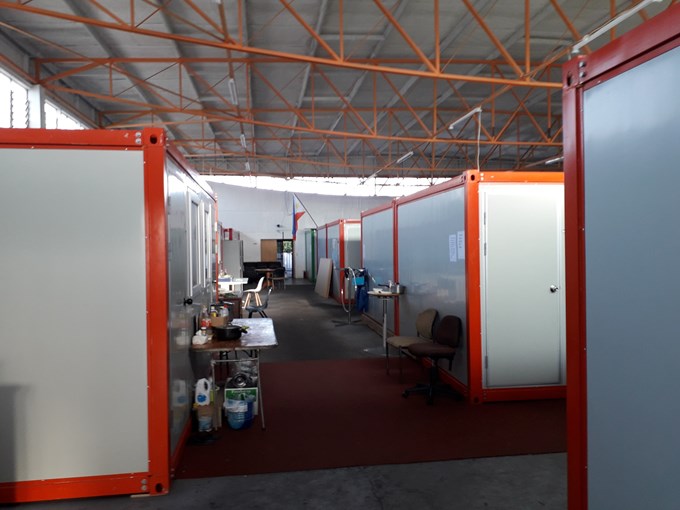Auckland Council has been successful in its prosecution against Radius Contracting Ltd and William Farmer who each faced two charges of breaching the Resource Management Act 1991 and Building Act 2004.
The charges relate to the use of a warehouse in Maich Road, Manurewa as a boarding house for predominantly migrant Filipino workers. While the property was zoned to allow workers’ accommodation as a permitted activity, it was subject to the relevant compliance requirements and standards for the zone.
The property did not have resource consent nor was it authorized to house 21 portable cabins or the 42 tenants who began arriving to occupy those cabins in December 2017.

The building also did not comply with aspects of the Building Act 2004 including the building warrant of fitness for the site which had expired, while the layout inside the building posed a serious fire risk.
Mayor Phil Goff said he was pleased with the outcome.
“This decision sends a strong message to companies who put the safety of others at risk by flouting the RMA or building codes that this sort of behaviour will not be tolerated,” he said.
“Companies are responsible and accountable for ensuring their buildings comply with the appropriate codes and tenants are not endangered.
“I’m pleased to see a strong decision taken against this serious offence against vulnerable workers and I hope it will serve as a warning to other companies who might seek to exploit those in their employ.”
The defendant, Radius Contracting, specialises in resourcing labour from the international market while Mr Farmer was their logistics manager, contracted to the company to provide accommodation for the offshore workers.

Judge David Kirkpatrick imposed a total combined fine of $112,500 ($67,500 for Radius and $45,000 for Mr Farmer) plus court costs.
In sentencing, Judge Kirkpatrick said both defendants had been “more than merely careless” in their dealings and “given the scale of the additional works they undertook, should have been aware the multi-unit residential accommodation was likely to require building and resource consents. They could not claim they were unaware of compliance issues.”
The works undertaken by Radius and Mr Farmer without a resource or building consent included the installation of 21 container type buildings for sleeping, the installation of additional sanitary fixtures and kitchen, plumbing in one of the container type building with shower cubicles and the construction of an additional room at the top of the container-type building.
“It’s a case where financial incentives to cut corners and proceed without a building consent has been dealt with severely,” says Kerri Fergusson, Manager Compliance Response and Investigations.
“Too often people take shortcuts to try to beat the system and in doing so expose others, in this instance vulnerable overseas workers housed in the units, to risk. The penalty reflects the seriousness of the offence.”
Mr Farmer’s application for discharge without conviction to take advantage of the Clean Slate Act was dismissed by Judge Kirkpatrick.
Two other defendants are facing similar charges and are awaiting trial.


